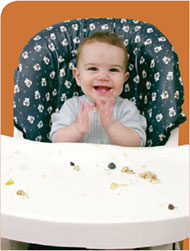 Does my child need to be taken to a pediatric dentist?
Does my child need to be taken to a pediatric dentist?
Pediatric dentists are specially trained to handle problems particular to children, such as dental developmental difficulties and root canals on adult teeth that have not fully formed. However, most children are treated by general dentists. A general dentist often has a relationship with the entire family and therefore has a great deal of family history knowledge, which may apply to your child. If you’re having trouble deciding on the type of dentist to use for your child, ask your family dentist or your child’s pediatrician for suggestions.
When should I take my child to the dentist?
The ideal time is six months after your child’s first tooth erupts. This is the perfect time for the dentist to carefully examine the development of your child’s mouth. Dental problems often start early, so the sooner the visit occurs, the better. Also, your dentist can provide or recommend special preventive care to safeguard against problems, such as baby bottle tooth decay, teething irritations, gum disease, ans prolonged thumb-sucking.
How do I prepare my child and myself for the first visit?
Before the first visit, ask the dentist what procedures will be performed so there are no surprises. Plan a course of action to manage your child’s reaction to the visit. Some children may be non-cooperative. Talk to your child about what to expect and build excitement as well as understanding about the upcoming visit. Bring your child’s medical history forms before the appointment.
When will my child lose his/her baby teeth?
Children will begin losing teeth at approximately age 4. They will usually lose their front teeth first. Children will continue to lost baby teeth until age 12 or 13 when all the permanent teeth finally erupt.
Why is it important to fix baby teeth that have decay?
It is very important to maintain baby teeth because these teeth hold space for the future eruption of permanent teeth. If a baby tooth decays or is removed too early, the space necessary for the permanent tooth is lost and can only be regained through orthodontic treatment. Infected baby teeth can also cause permanent teeth to develop improperly, resulting in permanent enamel defects and weaker teeth.
What can I do to protect my child’s oral health at home?
Clean your infant’s gums with a clean damp cloth. Ask your dentist if you may rub a tiny dab of toothpaste on the gums. As soon as the first teeth come in, begin brushing them with a small, soft-bristled toothbrush and a pea-sized dab of fluoride toothpaste. Help a young child brush at night, which is the most important time to brush, due to lower salivary flow and higher susceptibility to cavities and plaque. By approximately age 5, your child can learn to brush his or her teeth with proper parental instruction. The best way to teach a child how to brush is to lead by good example. Allowing your child to watch you brush your teeth teaches the importance of good oral hygiene.